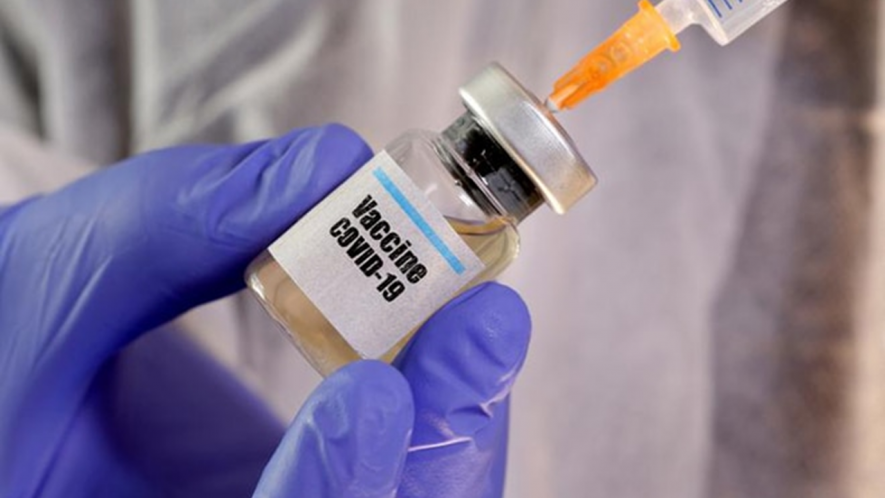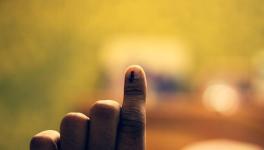Why the Pricing of COVID Vaccines is a Scam

When the country is grappling with the worst health crisis it has faced in a century, the COVID-vaccine producers have decided to seize the opportunity to go on a profiteering spree, taking advantage of the Narendra Modi government’s incompetence or complicity (call it what you will).
Two issues have to be distinguished at the outset. One, what should be the price for the COVID vaccine that consumers should be paying; and there can be little doubt that this price should be zero, as even Arvind Subramaniam, a former chief economic adviser under the Modi regime, has pointed out.
Two, what should be the price paid to the producers? And here the government has allowed them to charge whatever they wish, insisting only that they sell to the Centre at Rs 150 per dose. And they are making merry, fixing exorbitant prices for what they sell to state governments and to the private market.
Their justification for doing so is marked with so many non-sequiturs, subterfuges and falsehoods that one does not know where to begin. Let us take Covishield first, produced by the Serum Institute of India (SII), using technology developed by Oxford-AstraZeneca. It has announced that it would sell to state governments at Rs 400, and to private buyers at Rs 600. The rate at which it will sell to the Central government is still unclear, with the Centre saying Rs 150 and SII saying Rs 400.
Now, Rs 600 per dose comes to approximately $8, and Rs 400 to $5.33 (at the exchange rate to which the second COVID wave has brought the rupee down). AstraZeneca, however, sells to European countries at $2.18 per dose and plans to sell it to the United States at $4.00.
The SII itself exports this vaccine to South Africa at $5.25 per dose, which is less than what it wishes to charge any buyer in India. In fact, the price charged by SII in India would be the highest that any country would be paying for this particular vaccine.
The justification that SII provides for such pricing keeps changing. Sometimes it claims that vaccines used for universal immunisation programmes are sold at a lower price (which is why sales to the government are cheaper), while vaccines sold to private buyers are more expensive. Why this should be so is not clear. And if this were so, then it is an implicit admission that if instead of private hospitals buying the vaccine from it, the government bought the whole stock and distributed it even to private hospitals, then the price charged would have been lower.
And that, therefore, the Modi government’s allowing private sales (in no other country are private hospitals allowed to buy COVID-19 vaccines) is responsible for higher prices being charged to private hospitals, whence it follows that the prices charged are arbitrary and have nothing to do with costs.
Sometimes it is claimed by SII that a surplus of resources has to be created from such sales to facilitate the expansion of production capacity to cope with the crisis. But this argument does not hold at all, since the Central government has just given Rs 3,000 crore to SII for increasing its productive capacity, which it has accepted. So, resource mobilisation through over-pricing is not necessary. Besides none of these arguments explains why the price charged in India is higher than on exports. These arguments, in short, are mere subterfuges invented to cover up profiteering in the midst of a pandemic.
The rapacity of SII, however, is nothing compared with that of Bharat Biotech, the producer of Covaxin developed in India. Bharat Biotech has fixed Rs 150 per dose for what it supplies to the Central government (which would be half its production), And Rs 600 and Rs 1,200, respectively for what it supplies to the state governments and to private hospitals (which together would be the other half).
Now, why Bharat Biotech should charge four times as much to state governments as it does to the Centre, why state governments should have to compete with private hospitals for obtaining their requirements of the vaccine, are matters shrouded in mystery. To say that sales to the Centre have to be cross-subsidised by charging more to the states makes no sense, since both tiers of the government are supposed to serve the same people. But I shall take up only one point here: why are Covaxin rates even higher compared with the exorbitant rates announced by SII for Covishield?
The answers here again are as ludicrously absurd as they keep shifting. The first answer is that Bharat Biotech (BB) has spent Rs 350 crore of its own money in clinical trials of Covaxin, which SII did not have to do and which it must recoup. But this is simply untrue. R Ramkumar of Tata Institute of Social Sciences, (Scroll, in April 26) has shown that considerable public funding has gone into the development of Covaxin, and that this is acknowledged in all the papers in peer-reviewed journals that have appeared on Covaxin. This is also evident from the fact that the chairman of Indian Council of Medical Research or ICMR is a co-author of all these papers.
But let us for argument’s sake accept BB’s claim. It proposes to scale up its capacity to 70 crore doses per annum, but at present, its plan is to produce three crore doses next month. If we take the ratio of sales to the Centre, to the states and to private hospitals next month onward to be ½: ¼:1/4, respectively (I take these figures deliberately because they are not conducive to my argument), then the sales to private hospitals alone will be 75 lakh doses next month. But since the extra charge per dose for Covaxin compared with Covishield, is Rs 600 on sales to private hospitals, the Rs 350 crore spent on Covaxin clinical trials (which Covishield did not have to incur) would get recouped in 23 days alone! What then is the justification for permanently fixing the price to private hospitals at twice the level that SII proposes to charge?
Likewise, BB has suggested that because SII got $300 million funding from the Bill and Melinda Gates Foundation while it did not have any such patronage, its capital costs are higher and have to be recouped through higher prices.
Again, if we assume the same ratio of sales to various agencies, the weighted average price for Covaxin comes to Rs 525. The weighted average price for Covishield (let us assume that eventually, SII will have to sell to the Central government at Rs 150 a dose) comes to Rs 325, a difference of Rs 200.
Even at a constant production level of three crore doses per month (this, however, would be rising according to the BB), the additional $300 million that BB has spent out of its own resources, would be getting recouped in less than four months. To charge forever a higher price to recoup higher capital costs that can actually be recouped in less than four months is what constitutes extreme rapacity.
In fact, every argument advanced by both SII and BB is disingenuous. To justify higher prices on the grounds that, because the virus is prone to mutating, new variants of the vaccine have to be continuously developed, makes no sense, as no figure is provided on how much money is to be set aside for this purpose.
Likewise, to justify higher prices on the grounds that additional investments have to be made to expand capacity makes no sense, since resources are being obtained from the government for expanding capacity. (BB is getting Rs 1,500 crore from the Central government in addition to the Rs 3,000 crore earmarked by the Centre for the SII). Both the producers, in short, are exploiting the crisis for profiteering. If the Central government is unaware of this, then that constitutes utter incompetence. If it is aware, then it is obviously complicit in this fraud and why it is so requires investigation.
What the government should do instead is clear. One can think of four alternatives in decreasing order of boldness. The first is to nationalise the production of COVID-vaccine, which would be the obvious solution. The second, failing the first, is for the government to take over BB and SII only for the period of the crisis, in order to prevent over-pricing, with the promise to return them after the crisis gets over (as countries in Europe, like Spain did to private hospitals).
The third is to set up a commission that goes into the costs of production (as happens with the Commission on Agricultural Costs and Prices) and recommends a price to be paid by the government (including if there is any rationale for having more than just one bulk buyer as has happened with AstraZeneca in other countries).
Finally, there is the suggestion put forward for breaking the monopoly position of the current producers; and that is to use compulsory licensing to allow new producers through competitive bids. The one offering to charge the lowest price for the vaccine should be selected to produce the vaccine.
Get the latest reports & analysis with people's perspective on Protests, movements & deep analytical videos, discussions of the current affairs in your Telegram app. Subscribe to NewsClick's Telegram channel & get Real-Time updates on stories, as they get published on our website.
























